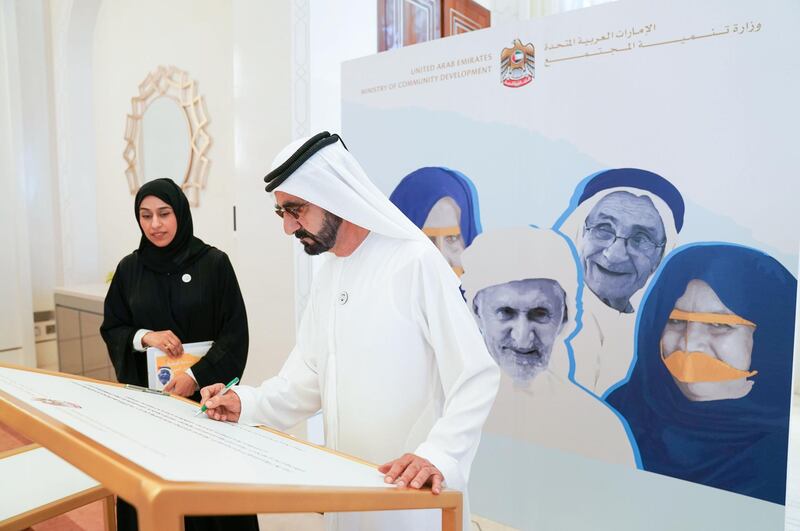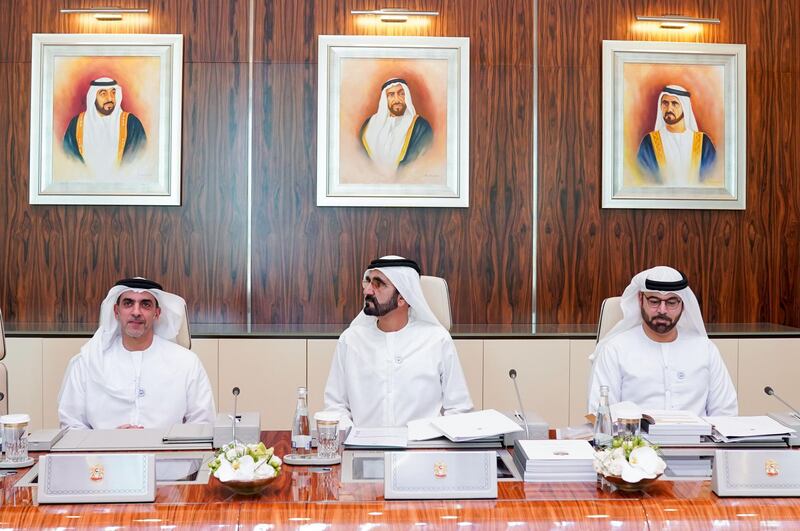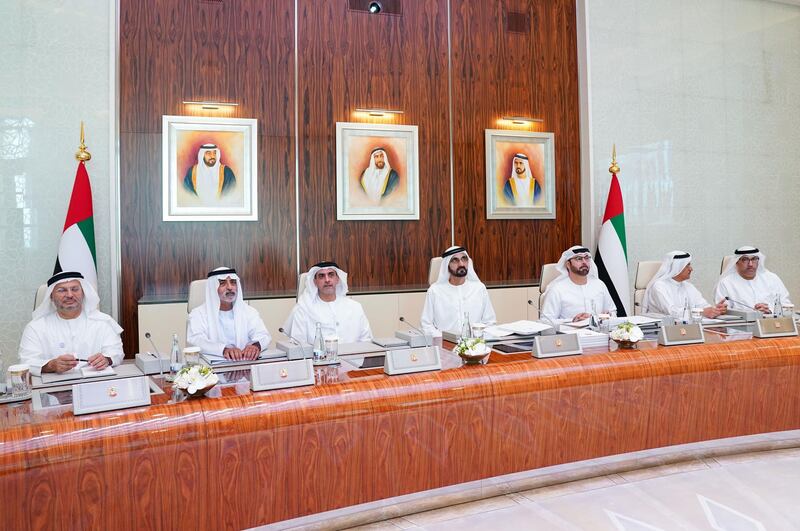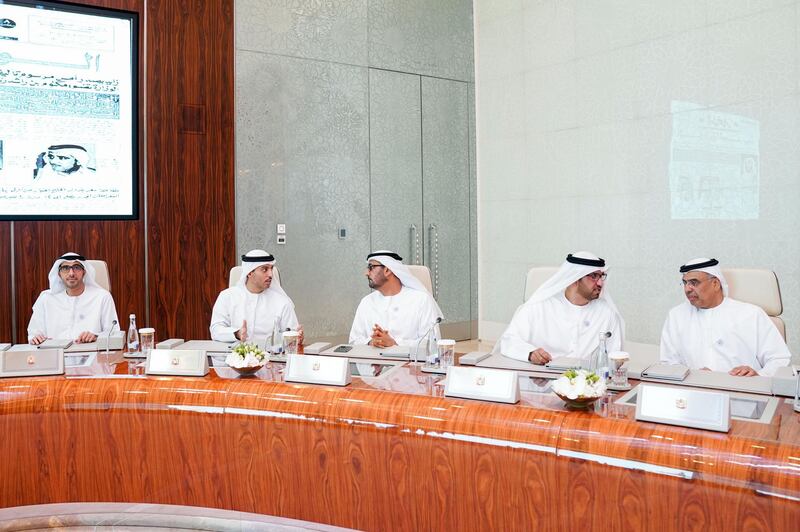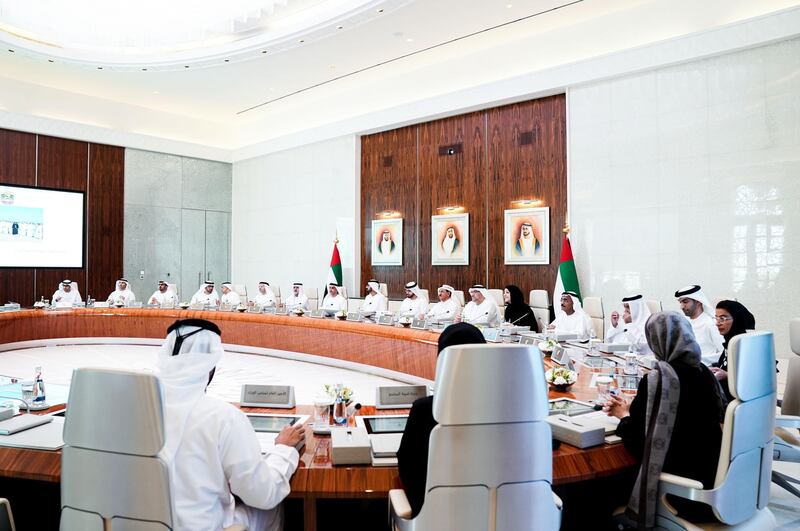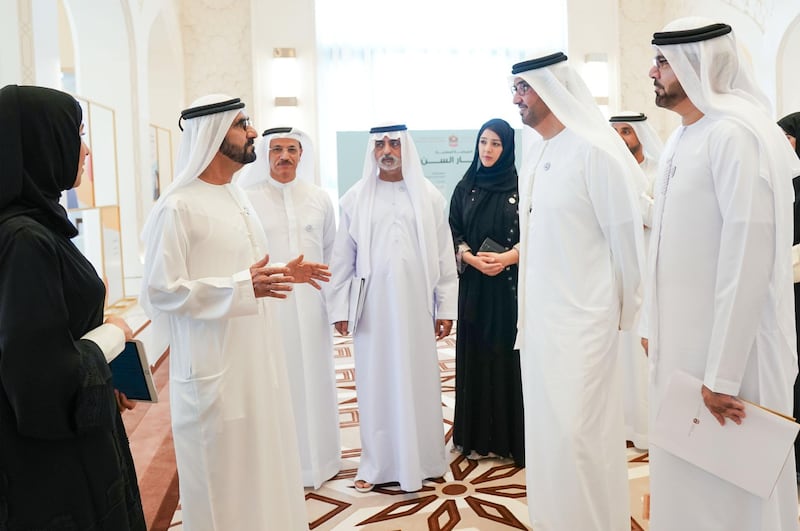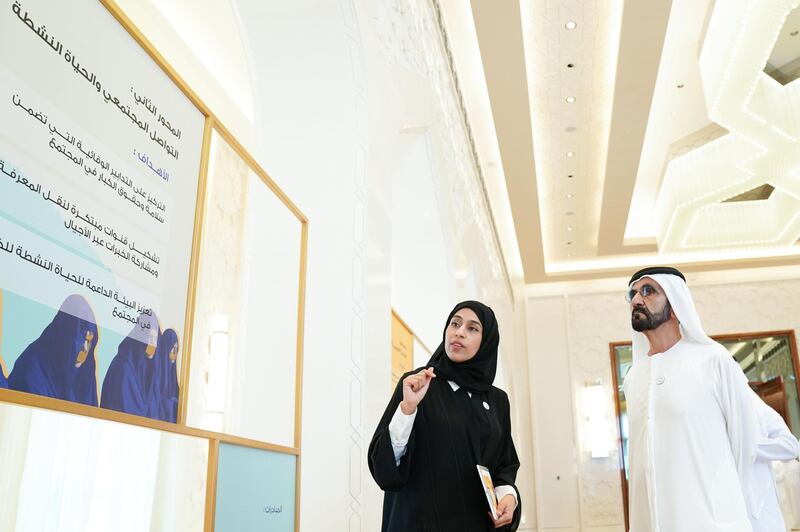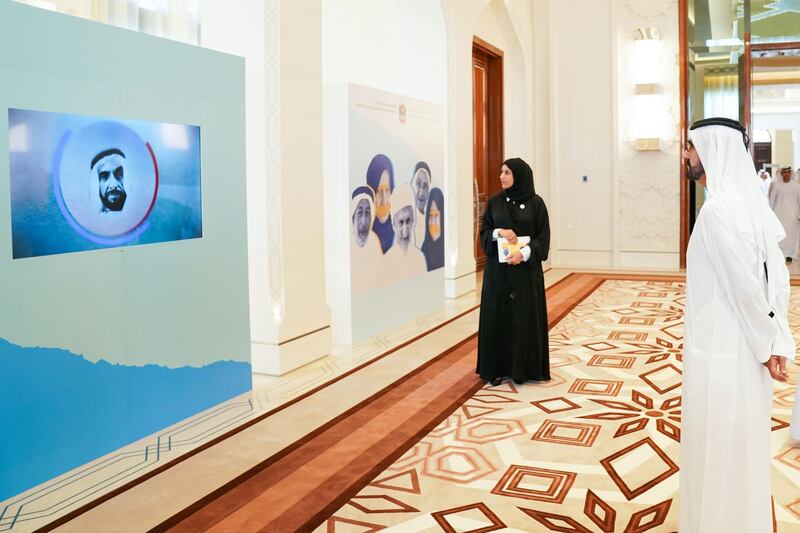A countrywide policy to protect the rights of senior citizens, offering them health insurance and greater social inclusion, was approved by the UAE Cabinet on Sunday.
The National Policy for Senior Emiratis aims to ensure elderly Emiratis remain active members of society and have access to the services they need.
The policy is built upon seven main components: healthcare, community involvement and active life, effective civic participation, infrastructure and transportation, financial stability, safety and security and quality of life.
Sheikh Mohammed bin Rashid, Prime Minister and Ruler of Dubai, chaired the cabinet meeting on Sunday and began the session by replacing the term ‘elderly’ with ‘senior Emiratis’, as a sign of respect to the older generation.
"They are senior in experience, in service to this country and the highest in our eyes and hearts," he said on Twitter.
ترأست اليوم اجتماعا لمجلس الوزراء أقررنا خلاله سياسة وطنية جديدة لكبار السن ... أعدنا التسمية لتكون "كبار المواطنين" بدلا من كبار السن ... هم كبار في الخبرة .. وكبار في الخدمة لهذا الوطن.. وكبار في النفوس .. وكبار في العيون والقلوب pic.twitter.com/G0gmHV60tu
— HH Sheikh Mohammed (@HHShkMohd) October 21, 2018
He said the policy includes establishing specialised health insurance, that covers medical issues most commonly experienced by senior citizens, organised sports activities to keep them fit and healthy, and special discount rates for public transport.
Initiatives including medical training for caregivers and forming provide basic health insurance plans for senior citizens across the country are part of the components dubbed the "healthcare hub".
Training centres to provide senior citizens with "modern skills" will be also established under the policy, as will a consultancy programme whereby experienced retirees from a variety of fields can offer their expertise to current employees.
A scheme to customise homes based on peoples' individual needs will also be launched, Sheikh Mohammed said.
Programmes to protect the elderly from abuse and violence will also be introduced, he said. This includes training to help others detect abuse and a hotline for the elderly to use to report such cases.
The policy comes as part of efforts from President Sheikh Khalifa to cater for all segments of UAE society and ensure senior citizens' well-being, reported state news agency Wam.
The move comes as a relief to elderly Emiratis living in the Northern Emirates who say they have been struggling to make medical payments with their meagre monthly pensions.
Fisherman Jasim Ahmed, 54, lives in Fujairah with his 75-year-old mother. She is paid out a pension of about Dh4,000 a month which he said seldom covers her needs.
“[The elderly] need special care and not all the families can provide that as many can’t afford to pay for a house nurse or even cover their medical expenses if they were transferred to private hospitals or clinics,” said Mr Ahmed.
"My mother will definitely be happy when I tell her about the new policy, we trust our leaders and we are very confident that they will always come up with decisions that support our needs.
"The elderly people are our pride and they are very important and they deserve the best," he said.
_______________
Read more:
'Don't forget us': UAE's elder citizens yearn for the chance to remain part of the community
'This is all because of Zayed': Elder Emiratis tell of lives before unification
_______________
Ayshah Al Antali, 58, said she hoped that the specialised health insurance for the elderly would include home medical care.
"Our aunt is nearly 76 years old and her son brought a housemaid to take care of her but they are not experts and don't know how to deal with the elderly people," said Ms Al Antali, who lives in Dibba with her 10 children.
She said she would be keen to learn new skills at one of the new training centres.
"I'm a homemaker and having the opportunity to learn new skills is very exciting to me and will encourage us all to keep giving back to the community and our country."
There are about 25,000 elderly people in the UAE that the Ministry of Community and Development actively communicates with and gives financial and community support to, according to Hessa Buhumaid, Minister of Community Development.
"In addition to this, the ministry adopted a national value and approach to care for the elderly people for the first generations who participated in building the country," she told The National.
This month, on the International Day of Older Persons, elderly Emiratis had one message for the country's younger generation: "Don’t simply ignore us".
In response, Ms Buhumaid announced a campaign to recognise the needs of the elderly, named "Your blessing is our duty", and opened a day-care club for elderly people in Umm Al Quwain, the second after one in Ajman. The intention is to expand the centres into a nationwide communications hub between elderly people.
There are up to 700 million people across the globe who are over the age of 60, presenting new challenges for every government. The number of people over 65 will more than triple to 2.1 billion by 2050, according to the World Economic Forum.
